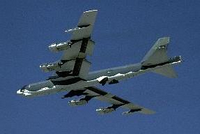Over the past few days, Libyan rebels supported by NATO airstrikes have seized most of Tripoli. The rebels' apparent military success has quieted, at least for the moment, many critics of NATO's military strategy in Libya. While a full account of the lessons learned from the conflict must await the writing of a full history -- not to mention the end of the actual war -- the events of the past few days demand a degree of re-evaluation of how the campaign was conducted.
Indeed, this column has offered several critiques of NATO's performance, including commentary on the dubious legality of airpower campaigns, ruminations on the effectiveness of strategic airpower in Libya and a potentially premature set of "lessons learned" from the conflict.
As this list suggests, one of the crucial military questions that emerged from the campaign involves the effectiveness of airpower. With one long ground war winding down and another in full swing, the United States and its allies are extremely reluctant to deploy ground forces. The leaders of the major intervening countries made clear that ground troops would not play a major role in the Libyan intervention, with U.S. President Barack Obama most emphatic on this point. With ground troops unavailable, the burden of military intervention falls on air and naval forces. The Libyan campaign began with a no-fly zone that quickly morphed into a large-scale campaign to support rebel efforts to destroy the Gadhafi regime. The early course of the campaign recalled the first months of the Afghanistan War, in which the United States overthrew the Taliban with airpower, special forces and Northern Alliance ground forces.

